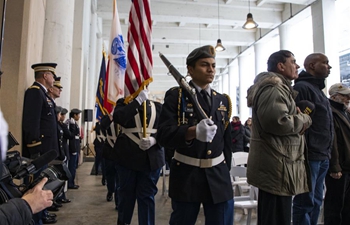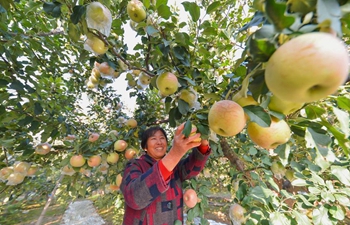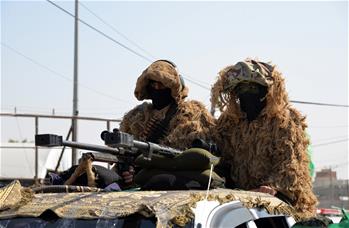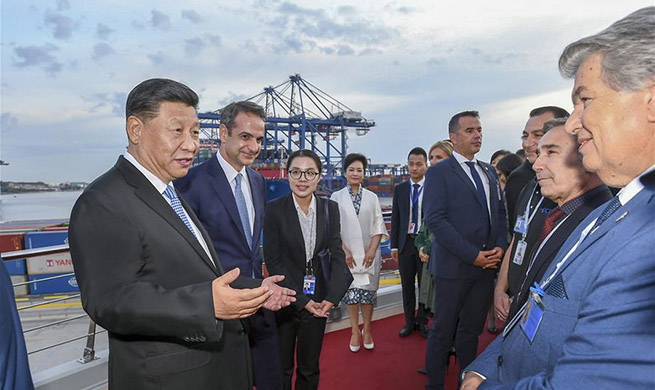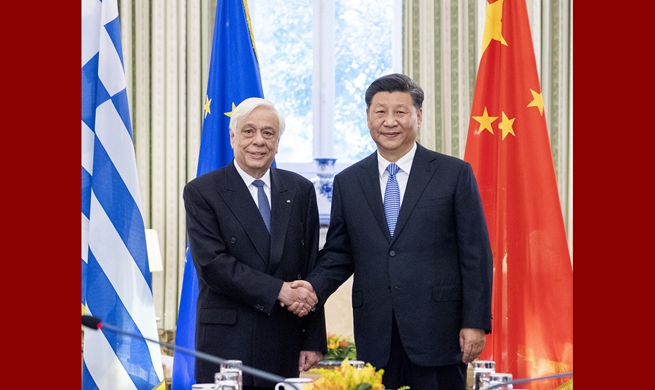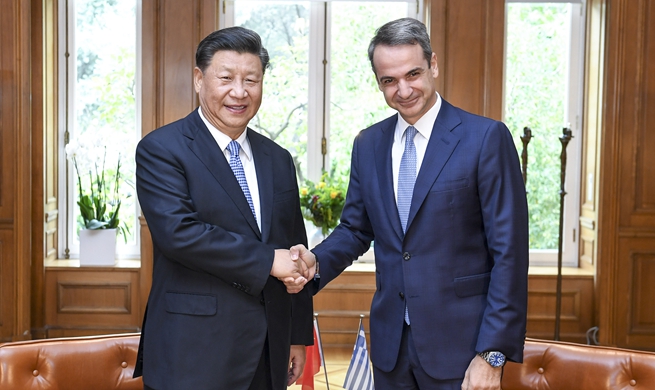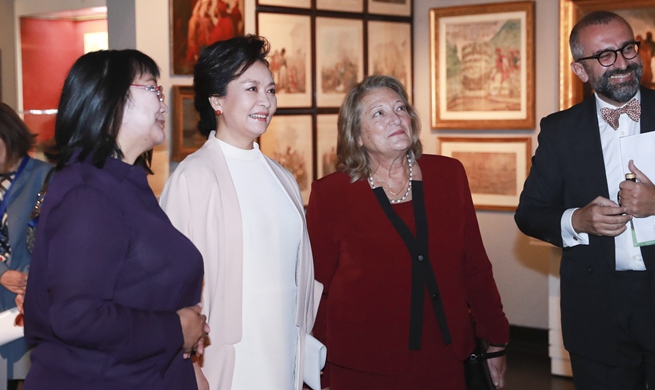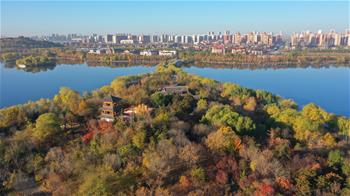BAGHDAD, Nov. 12 (Xinhua) -- Iraq said on Tuesday that it rejects any external interference in its affairs, asserting that the reforms the country's political process is a pure Iraqi decision as anti-government demonstrations continued in the country over corruption and deteriorated living conditions.
A statement by the media office of the Iraqi presidency said that the reforms, which came in response to the will of Iraqis, "cannot be subject to external dictates, any external interference is rejected and unacceptable."
According to the presidency statement, "Iraqis decide according to their national interest priorities, respect the will of the religious authority, within constitutional and legal contexts, and their independent national decision."
The statement, which issued by an official source from the presidency, apparently came in response to a statement on Sunday by the White House Press Secretary Stephanie Grisham, who called on other countries to support new elections to create a "better future for the Iraqi people."
"Despite being targeted with lethal violence and denied access to the Internet, the Iraqi people have made their voices heard, calling for elections and elections reforms," Grisham said.
The statement came also one day after the Iraqi presidency announced finalizing a new election draft law with assistance of Iraqi experts and UN representatives.
According to the new draft law, a new electoral commission will be formed from the Iraqi judiciary and other experts away from the quota system of the political parties which the current commission is based on.
Meanwhile, the Iraqi Council of Ministers, the cabinet, also submitted a new elections draft, and discussions are underway to combine the two visions into a final one which will be sent to the parliament for approval, according to the state-run Iraqi News Agency (INA).
The Iraqi constitution gives the right to both the government and the presidency to present a draft law to the parliament for discussion, amendment and approval.
Changing the elections law and the Independent High Electoral Commission were parts of the demands of the ongoing protests in Iraq.
Mass demonstrations have continued in the capital Baghdad and other cities in central and southern Iraq since early October, demanding comprehensive reform, accountability for corruption, improvement of public services and job opportunities.






